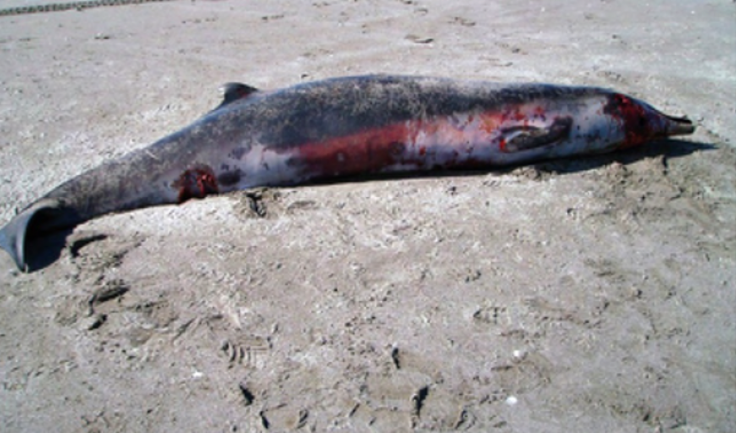World's Rarest Whale Seen On Beach In New Zealand; Spade-Toothed Whale Can Dive 800 Meters

Scientists have released a report of their findings around the world’s rarest whale, which was seen on a New Zealand beach. The 2010 find was the first documented sighting of a spade-toothed whale in history, according to Fox News, with only a few bones being recovered over the past few centuries.
The spade-toothed whale (Mesoplodon traversii) is considered the world’s rarest mammal. The two carcasses were found on that New Zealand beach when a mother and calf washed ashore and became stranded until their death. They originally were thought to be the much more common gray-toothed whale.
The DNA results confirming the animals' identity will be published on in the Nov. 6 version of the Current Biology journal.
The Telegraph reported that evidence of the species’ existence was first found in the form of a broken jawbone on a Pacific island in 1872. Partial skulls were found in New Zealand and Chile in the latter half of the 20th century, making up the total physical evidence of their existence.
“This is the first time this species — a whale over five meters in length — has ever been seen as a complete specimen, and we were lucky enough to find two of them,” said Dr. Rochelle Constantine of the University of Auckland.
“Up until now, all we have known about the spade-toothed beaked whale was from three partial skulls collected from New Zealand and Chile over a 140-year period. It is remarkable that we know almost nothing about such a large mammal.”
Little is known of the rare whales other than their ability to dive up to 800 meters deep and stay there for as long as 87 minutes, according to the Scientific American. Other than that the spade-toothed whale looks, to the untrained eye, like most beaked whales, which accounts for the initial confusion about what type of animal was found on the beach in 2010.
Constantine told Discovery the DNA proof probably indicates the sea is full of creatures still unknown to man, including other rare marine life that lives entirely in the depths of the oceans.
“When these specimens came to our lab, we extracted the DNA as we usually do for samples like these, and we were very surprised to find that they were spade-toothed beaked whales,” Constantine said. “We ran the samples a few times to make sure before we told everyone.”
© Copyright IBTimes 2024. All rights reserved.











